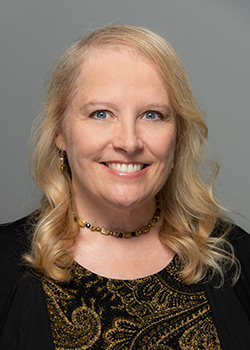Top Navigation
University Relations
°ДГЕБщәПІКАъК·јЗВј Home > News > Newsrelease Print
°ДГЕБщәПІКАъК·јЗВј Human Resources Professor Featured in Barron and Teen Vogue Articles
April 4, 2024
MACOMB/MOLINE, IL - - °ДГЕБщәПІКАъК·јЗВј School of Management and Marketing Professor of Human Resource Management & Organizational Behavior Susan Stewart was recently featured in two articles about her research on sexual harassment of young workers. The first was in BarronвҖҷs and the second was in Teen Vogue.
In BarronвҖҷs article titled вҖңRestaurants Want More Teen Labor. Critics Say TheyвҖҷre Putting Kids at Risk of Sexual Harassment,вҖқ journalist Catherine Dunn discusses the increased risk of sexual harassment that teen workers at restaurants face.
The article quotes StewartвҖҷs research on sexual harassment at °ДГЕБщәПІКАъК·јЗВј.
вҖңTeenagers can be especially susceptible to harassment because of their low-seniority status at work and because they may be too scared to speak up or to challenge an adult. In practical terms, teens working seasonally might not get annual harassment training or be on evening or weekend shifts when the main manager isnвҖҷt on site. Another вҖңbig risk factorвҖқ for teens is simply the lack of awareness about what behavior is inappropriate and illegal on the job,вҖқ Stewart said.
To read the full article, visit .
In Teen VogueвҖҷs article titled вҖңWhat Are My Rights as a Young Person at WorkвҖқ, journalist Rainesford Stauffer discusses what labor laws young workers should understand.
The article quotes StewartвҖҷs research on sexual harassment.
вҖңDepending on your job, though, harassment protections may not apply to you. If you're a teen and you work for a small business or you're freelance, you don't have those same protections under the law,вҖқ Stewart said.
вҖңTeenagers in вҖҳfreelanceвҖҷ employment, such as babysitting or mowing lawns, might be especially susceptible to sexual harassment due to the unsupervised nature of that work. In general, young people in their first jobs are more susceptible to experiencing harassment in the workplace, according to the EEOC. Being newer to the workplace and working less than full-time can mean being unsure about workplace expectations and reporting mechanisms; sexual harassment workplace trainings are rarely aimed at part-time workers, who are often young; power imbalances and age differences between teenage workers and adult supervisors, or teenagers supervising teenagers at work and peer sexual harassment, can also be factors,вҖқ Stewart continues.
вҖңThere's a lot of spillover from behaviors that teens encounter in high school into the workplace, and they have to understand that it's illegal in the workplace. Sort of what they might see as just generally teasing or texting, it changes once they venture into a work setting,вҖқ Stewart said.
Stewart points to several steps individuals can take:
Much of the training geared toward adults suggests confronting the harasser, but Stewart notes some people might not feel comfortable doing that. If you do, though, she explains, the confrontation is meant to stop the behavior right there: вҖңHey, that joke is not funny,вҖқ or вҖңHey, I donвҖҷt appreciate that.вҖқ
After youвҖҷve documented the incident вҖ” if you feel comfortable doing so вҖ” and asked your harasser to stop, you can report the behavior to your supervisor (as long as they are not the harasser) or the HR department.
Stewart says to talk to someone you trust, like a friend, parent or teacher, for advice and support.
To read the full article, visit .
Posted By: University Communications, University Relations
Phone: (309) 298-1993 * Fax: (309) 298-1606
